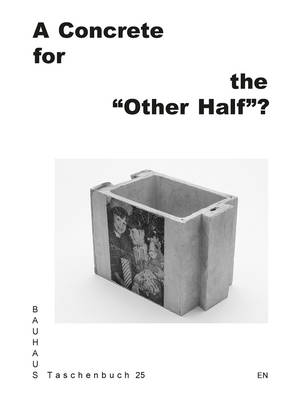
- Afhalen na 1 uur in een winkel met voorraad
- Gratis thuislevering in België vanaf € 30
- Ruim aanbod met 7 miljoen producten
- Afhalen na 1 uur in een winkel met voorraad
- Gratis thuislevering in België vanaf € 30
- Ruim aanbod met 7 miljoen producten
Omschrijving
The invention, uses and afterlife of an innovation designed to sidestep the Western construction industry
The invention of the sulphur concrete block was the result of experiments performed by the Minimum Cost Housing Group at McGill University in Montreal in the 1970s. The international research group explored self-building using materials that would present an alternative to the functionalistic logic of development aid programs tied to the Western construction industry. The "Other Half"--a term that was coined to describe decolonized countries and urban populations living in informal housing at the time--was the focus of their experiments with alternative building solutions.
Beginning with an overview of how and why the block was made, its usage and its afterlife, and going on to examine its status within architectural historiography, this book shows how the block became both a vessel and vector for the projections and questions explored by the transdisciplinary group of the Bauhaus Lab 2020.Specificaties
Betrokkenen
- Auteur(s):
- Uitgeverij:
Inhoud
- Aantal bladzijden:
- 144
- Taal:
- Engels
- Reeks:
- Reeksnummer:
- nr. 25
Eigenschappen
- Productcode (EAN):
- 9783959054898
- Verschijningsdatum:
- 26/04/2022
- Uitvoering:
- Paperback
- Formaat:
- Trade paperback (VS)
- Afmetingen:
- 104 mm x 144 mm
- Gewicht:
- 113 g

Alleen bij Standaard Boekhandel
Beoordelingen
We publiceren alleen reviews die voldoen aan de voorwaarden voor reviews. Bekijk onze voorwaarden voor reviews.











